The United Nations, The Inter-American Commission on Human Rights (IACHR) and members of the opposition expressed concerns over events in Formosa on Friday, after provincial police officers were accused of “repressing” protesters and using excessive force.
Clashes between police officers and protesters gripped Formosa on Friday, as demonstrators took to the streets to oppose the Peronist Governor Gildo Insfrán’s decision to return to strict quarantine measures. As protesters advanced on Government House, the provincial police force pushed back fiercely in an attempt to quell the demonstrations.
In a statement published on its social media channels, the IACHR said that “according to information received, police officers have used rubber pellets, tear gas, and beatings against protesters and journalists, which would have resulted in several injured people, and more than 30 detainees, including a journalist who was covering the events."
The entity called on the national government to ensure local policing respects "the right to protest,” underlining that “the use of force should be considered as a last resort, within the framework of exceptionality, justified only under the principles of legality, and absolute necessity and proportionality."
Earlier on Friday, the United Nations expressed concerns over “the use of indiscriminate violence.” A statement issued by the UN’s resident coordinator for Argentina, Roberto Valent, and the UN High Commissioner for Human Rights’ representative in the region, Jan Jarab, questioned the police response, saying the clashes had “resulted in people being injured and detained.”
“The use of force must obey the principles of legality, necessity, precaution, accountability and proportionality. The recorded facts must be investigated quickly, independently and thoroughly,” the duo said.
Local news outlets accused the police of “repressing demonstrators” who opposed the imposition of quarantine measures, as hundreds of neighbours sallied out onto the streets to repudiate the decision. The crowd, many of them individuals who work in the informal or “black economy, could be heard shouting "we want to work" as they rallied.
The protests began on Thursday night, stretching into yesterday morning. Several demonstrators were injured, according to reports, while one local councillor suffered a broken arm. Around 60 individuals were arrested, said the local authorities. The ADEPA press association said at least one journalist was injured by police officers.
Opposition condemnation
Members of the Juntos por el Cambio coalition also condemned the scenes in Formosa, branding them as a violation of human rights. Calling on President Alberto Fernández to intervene, a statement criticised the "repression and complicity" on display.
Opposition lawmakers have repeatedly sought to pressure the government in recent weeks over events in Formosa, a province that has been ruled by Governor Insfrán since 1995. Many have alleged the region is run like something akin to a feudal state, with corruption and cronyism rife.
PRO party leader Patricia Bullrich and Juntos por el Cambio national lawmaker Waldo Wolff announced that they would travel to the region thi Sunday to "accompany the claim of the people of Formosa, who want to work."
"They have been locked up for a year. Insfrán is the model of tyrant endorsed by the president. We are going to support them in this fight for human rights and work, " Bullrich said in a message posted on social networks.
Luis Naidenoff, a national senator for Formosa and president of the Juntos por el Cambio caucus in Congress, said that "the people of Formosa only want to work, study and circulate freely" and "the government's response is rubber bullets and gases."
"I urge Insfrán to stop the repression and the national government to end its complicity and guarantee fundamental human rights in Formosa," he said in a post on Twitter.
Reacting to the criticism, the Human Rights Secretariat, led by Horacio Pietragalla, issued a bizarre statement Friday that condemned "excessive violence" from protesters, as well as "the disproportionate use of police force," but pointed the finger squarely at the opposition.
The Secretariat slammed what it alleged is a "permanent smear campaign carried out by the hegemonic media against the provincial government,” and “the political use that some sectors of the opposition make of these events.”
Offering little criticism of the governor or the Formosa government, the statement said provincial authorities had “promised to initiate investigations into the excessive use of force by members of the provincial police."
Late Friday night, a small group of protesters in the capital demonstrated outside the Casa de Formosa in Buenos Aires City to reject the “repression” and demand the province be “liberated.”
Return to isolation
Formosa, a city of some 250,000, adopted strict measures when Covid-19 first reached Argentina in March last year, extending them throughout the province. Over the last 12 months, the region – which shares a border with Paraguay – has recorded around 1,300 confirmed cases.
The northern province has been in the news regularly over the past few months, following reports of local residents being detained at length in unsuitable and unclean detention centres..
This latest return to strict isolation (known in Spanish as Aislamiento Social, Preventivo y Obligatorio or ASPO) measures was decided by the Council of Integral Attention for the Covid-19 Emergency immediately following 23 (including 17 in the provincial capital) being registered in Formosa on Thursday.
The order is set to last until March 18. All activities except essential shops and services, as well as intercity transport, were suspended. Essential services include health workers, teachers, the security forces and senior authorities at national, provincial and municipal level. All state workers summoned to guarantee essential services are also exempted.
Regarding the 17 new cases detected in the provincial capital, seven were suffering mild symptoms, three were seeking an exit permit to travel from the province and six were close contacts, according to the official information.
The Council ruled this as "an outbreak of contagion in the capital of Formosa." It further remarked that the next few days will be the most important for avoiding an exponential escalation of contagion and for that it will be fundamental to comply with the sanitary measures decided last Thursday.
Provincial authorities dismissed allegations of heavy handedness on Friday.
"A group of people from the city of Formosa, dissatisfied with health decisions, resorted to extreme violence to make their claims,” said provincial minister Jorge Abel González. “Nothing justifies these types of violent actions.”
– TIMES with agencies












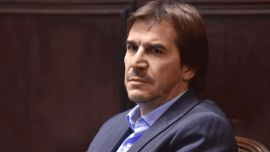

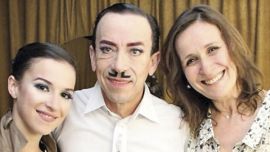






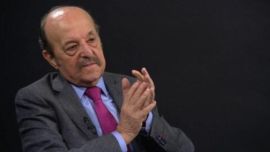
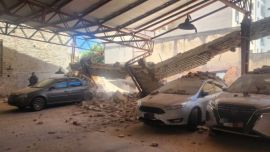
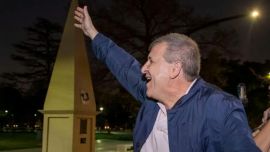
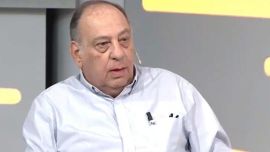
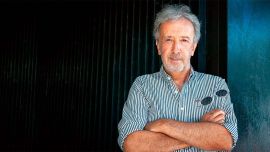
Comments